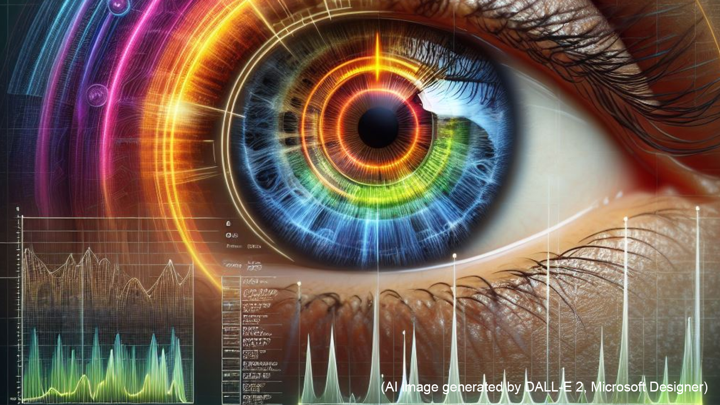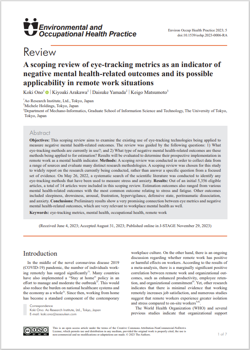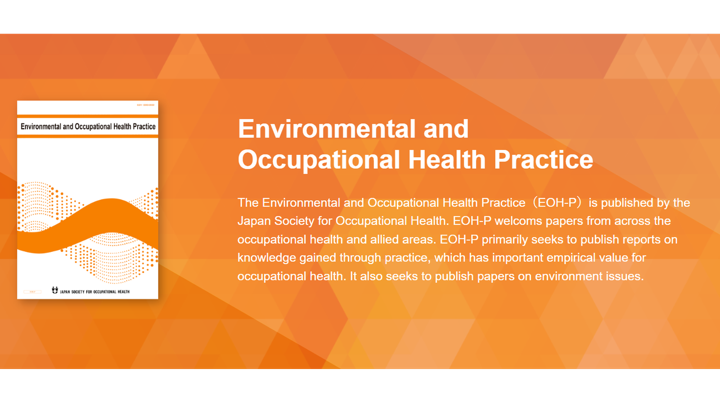#E0067 Eye tracking into the future to promote positive mental health

Eye tracking into the future to promote positive mental health
Remote work became the new workplace culture post-pandemic. Nevertheless, researchers continue to debate over the pros and cons of working remotely. One benefit to this arrangement has been the development of software such as eye-tracking software. It is perhaps appropriate that the software is being retrofitted to help workers improve their mental health status.
Occupational Health and Safety practitioners expressed concern about the repurposing of home settings for office work. A survey conducted by the WHO indicated that most home offices (53%) failed to meet safety and health standards. Further, previous research reported employees’ dissatisfaction with employers’ unwillingness to address their mental status while working remotely. To understand the relationship between humans and technology, eye-tracking software is being used to extract data to better understand workers’ cognitive and emotional states. While the science is admittedly still at an infantile stage for this purpose, advocates argue eye tracking is less intrusive than questionnaires about well-being.
To this end, the researchers conducted a scoping review to identify eye-tracking techniques used to measure negative mental health-related outcomes. Fourteen qualitative articles were extracted from an initial search of 12,281 records in five social science databases. Studies were conducted within the last 15 years in North America (6), Australia (1), Europe (5), and Asia (2).
Previous researchers used eye-tracking metrics to collate data via blink duration, target fixations, and pupillary response. Results showed signs of fatigue and drowsiness, trauma, stress, and frustration. Normally, this would signify a need for sleep. When these emotions occur during work hours, they are classified as negative mental health-related outcomes that adversely impact work productivity. Eventually, workers would be absent from the job, perform less work, and make more errors.
However, research on the use of eye-tracking software to assist mental health is limited due to the lack of uniformity in the research approaches. This limitation impacts the validity of outcomes. Further, the technology is mainly for commercial use. It might be worthwhile for organizations to investigate and create opportunities to ascertain how eye-tracking technologies can assist in assessing the mental health of remote workers.

Link to the original journal article:
https://www.jstage.jst.go.jp/article/eohp/5/1/5_2023-0006-RA/_article
Title of the paper:
A scoping review of eye-tracking metrics as an indicator of negative mental health-related outcomes and its possible applicability in remote work situations
Authors:
Koki Ono, Kiyoaki Arakawa, Daisuke Yamada, Keigo Matsumoto




